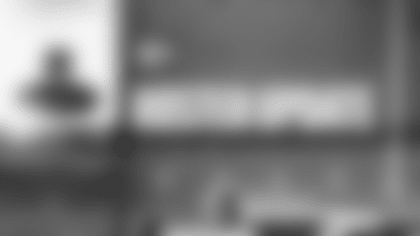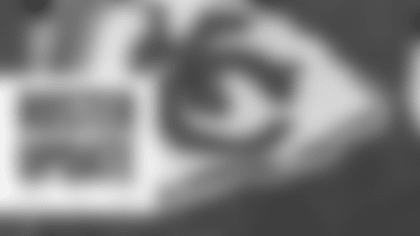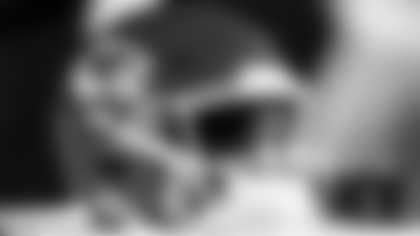Pause from what you're doing to consider, if you will, what the result may have been if the investigation of Len Dawson's supposed link to a known gambler on the eve of Super Bowl IV had taken place today.
Might it have been quickly dismissed as it was back in early January of 1970 with Dawson completely exonerated from any nefarious involvement?
Hardly.
Why might that have been so, you ask?
It was the times he was living in.
There was no such thing as an all-sports, all-day television network back in 1970, little in the way of sports radio, as we know it today, and nothing approximating cable television news networks or, better yet, blogs, the Internet, or any of the many communication outlets and related devices that serve to move news that never, how you say, "breaks," but keeps on running like an onrushing tide.
For those who can't recall the incident, here's a summation in this first of a two-part series.
J'ACCUSE
Just before the Chiefs were to begin preparations for the Super Bowl in New Orleans, *NBC News *carried an unsubstantiated report on the six o'clock news that Dawson and four other professional football players would be called to testify before a Detroit grand jury as part of a federal gambling investigation. The report cited unnamed government officials and, along with Dawson, fellow quarterback Joe Namath was also mentioned.

Make no mistake, this could have been devastating for the Chiefs. There was no way, even back in the late 1960s and early 1970s, that this incident could have been hermetically sealed. It could have permeated the team's preparation for the Super Bowl and damaged Dawson's reputation for all time. Moreover, punishment in those days could be swift, more so than it is today. No union or its representatives or lawyers jumped in to turn back any of the accusations or to threaten legal action of their own.
Alex Karras of the Detroit Lions and Paul Hornung of the Green Bay Packers, two of the NFL's premier players, were quickly suspended by the NFL in 1963 for their known association with gamblers. Both men missed a year's time, so any suggestion of gambling was always something to be feared. Since its creation, the NFL has always saved its most stern punishments for the vice. Indeed, one might argue the punishment is far greater than even a player's involvement in drugs today. (*ESPN *ranked the Karras/HornUng suspension as its second "most shocking moment in NFL history.")
Memories of the 1919 Black Sox scandal and college basketball's repeated gambling scandals of the 1950s have left a lasting imprint on the game's protectors.
Had Dawson's connection to this gambler taken place today – no matter how weak - it's safe to say the outcry would have been greater since speculation would have been forthcoming for days, weeks, perhaps for a month even after the game was long over.
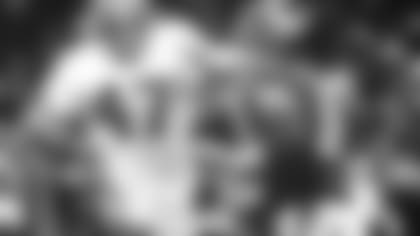
*THE STORY UNFOLDS *
With a full complement of sportswriters on hand covering the sport's biggest game, and the story breaking on the evening news – the major information carrier of its day – it gained even greater importance. A *Kansas City Star *report indicated that many in the crowd of sportswriters waiting for a comment from the Chiefs were betting that Dawson "would never leave the sanctity of the [Chiefs] eighth floor [hotel] to meet reporters waiting two floors below."
Earlier in the evening, a member of the Chiefs staff had read a statement from NFL commissioner Pete Rozelle indicating that the investigation was an ongoing one and being "carefully evaluated and considered in the Department of Justice," but quickly adding that "we have no evidence to even consider disciplinary action against any of those publicly named." In conclusion, Rozelle believed it "unfortunate for both the government and individuals named that some news media have seen fit to single out certain individuals at this time." He called their behavior "irresponsible."
When Dawson, along with his head coach Hank Stram, came before the media later that evening, he admitted that he had had "a casual acquaintance with Donald [no relation] Dawson of Detroit" who had been charged with violating federal anti-gambling statutes. He said he had met the man when he played for Pittsburgh and had heard from him on the occasion of the death of his father and on two other telephone calls after he had injured his knee. That was all he knew of the man, he said.
Photo Flashback of Super Bowl IV Chiefs Win in New Orleans over Minnesota Vikings
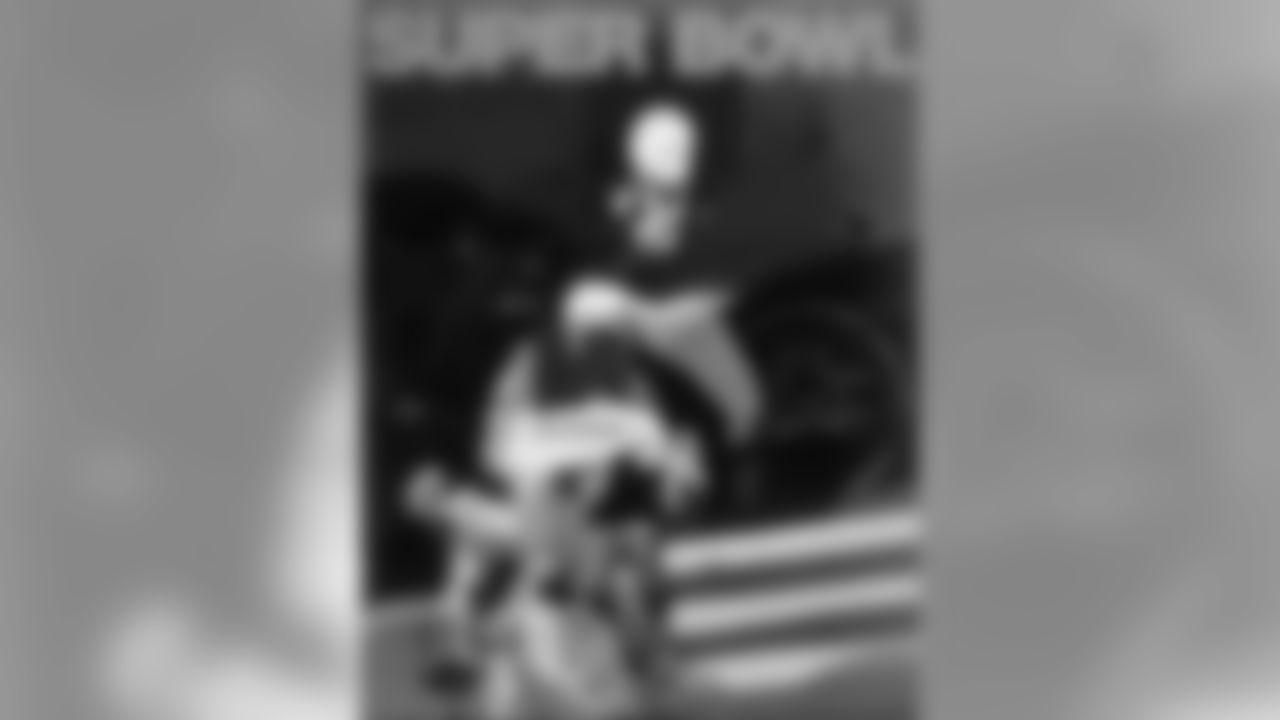
Banner for the Super Bowl IV for the game of the Kansas City Chiefs vs the Minnesota Vikings played on January 11, 1970 at the Tulane Stadium in New Orleans, Louisiana. Super Bowl IV - Minnesota Vikings vs Kansas City Chiefs

Kansas City Chiefs' coach Hank Stram, left, holds an umbrella for quarterback Lynn Dawson after they arrived in the rain at New Orleans Airport, Jan. 5, 1970. The Chiefs, champions of the AFL, meet NFL champs, the Minnesota Vikings on Sunday at the Super
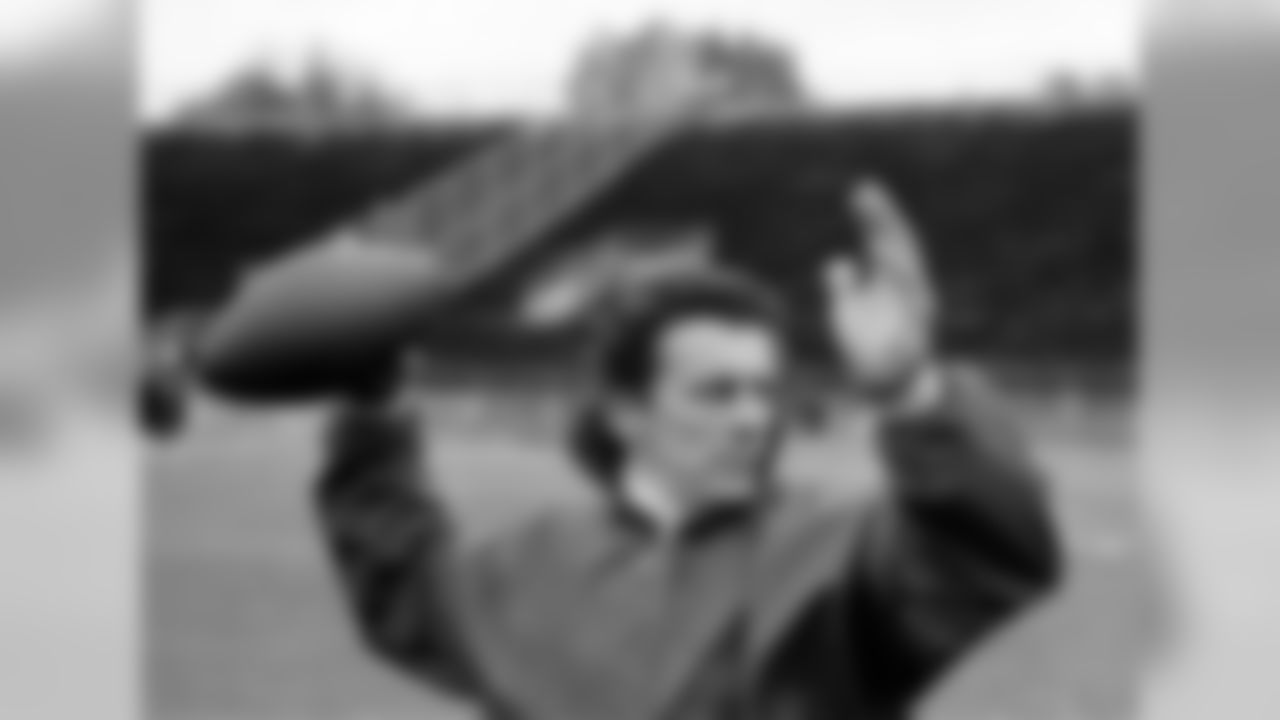
Len Dawson of the Kansas City Chiefs runs through passing drills with receivers in New Orleans on Jan. 10, 1970 to prepare for the Super Bowl. Dawson will be the starting quarterback in the fourth annual World Championship game.
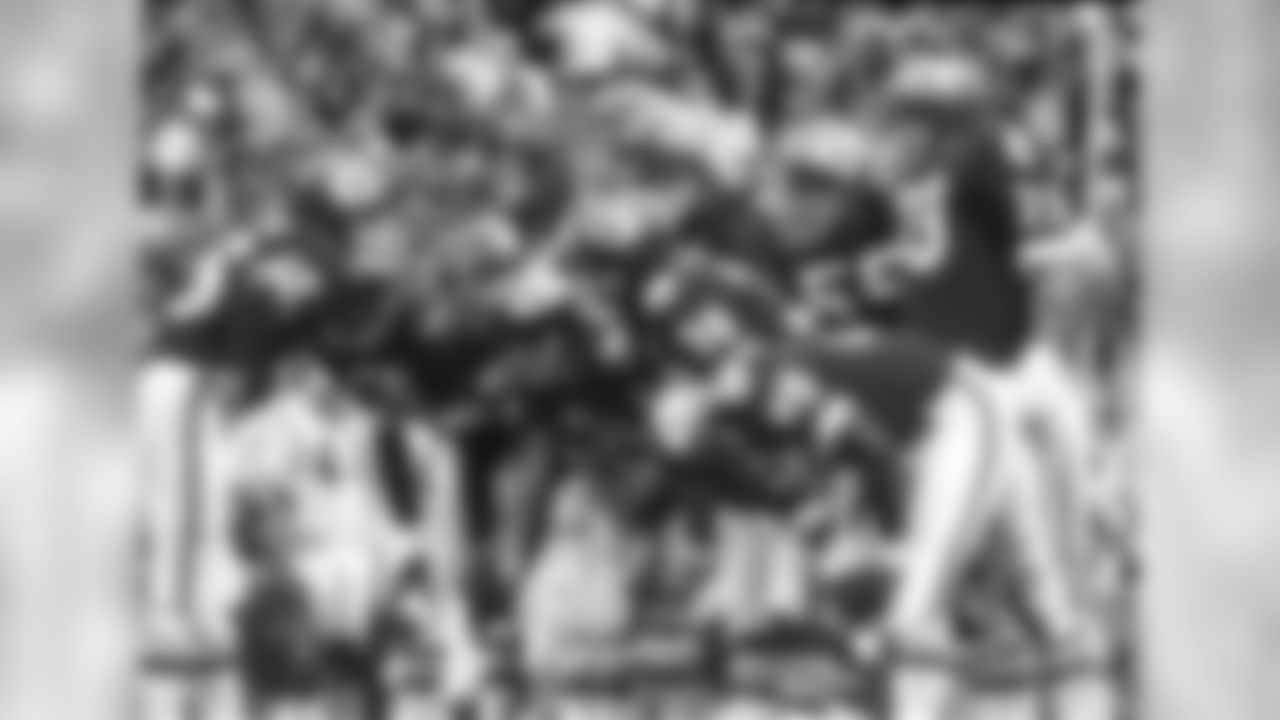
Pro Football Hall of Fame and Kansas City Chiefs quarterback Len Dawson (16) calls the play in the huddle during the Chiefs 23-7 victory over the Vikings in Super Bowl IV on 1/11/1970 at Tulane Stadium in New Orleans Louisiana. Super Bowl IV - Minnesota
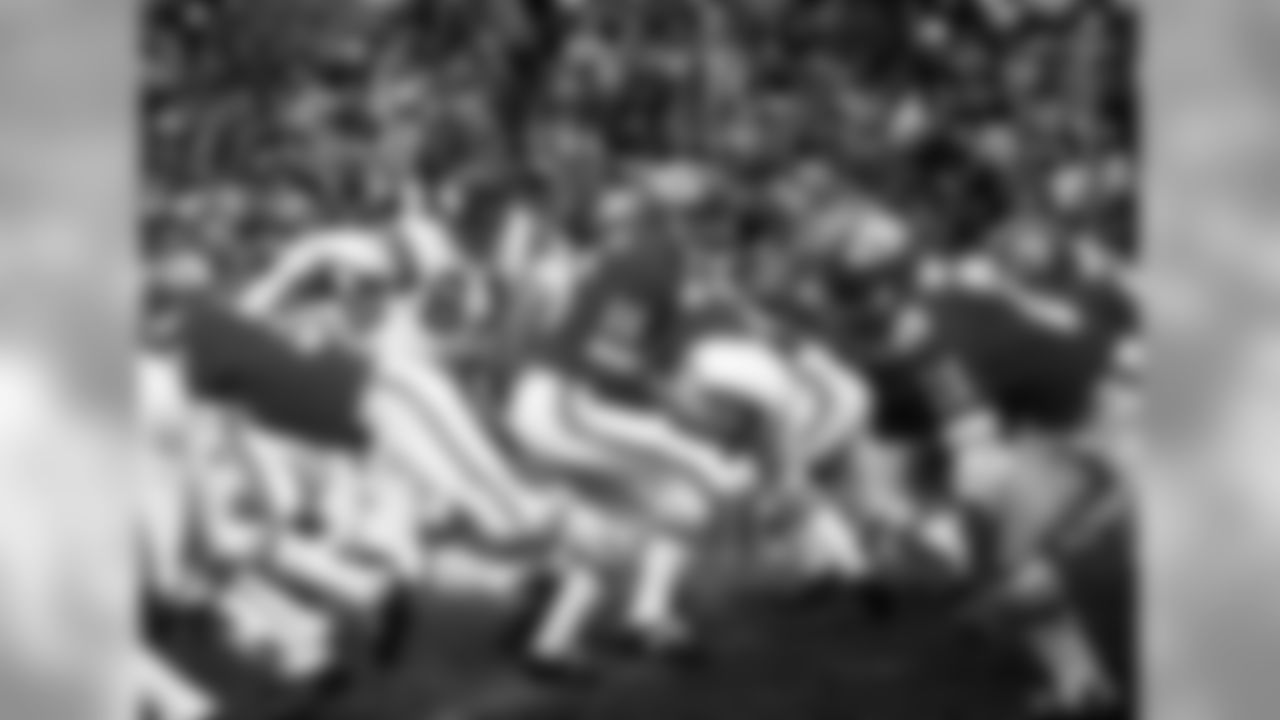
Kansas City Chiefs quarterback Len Dawson (16) turns around to hand the ball off to running back Mike Garrett (21) in Super Bowl IV in New Orleans, Louisiana, Jan. 11, 1970, against the Minnesota Vikings.
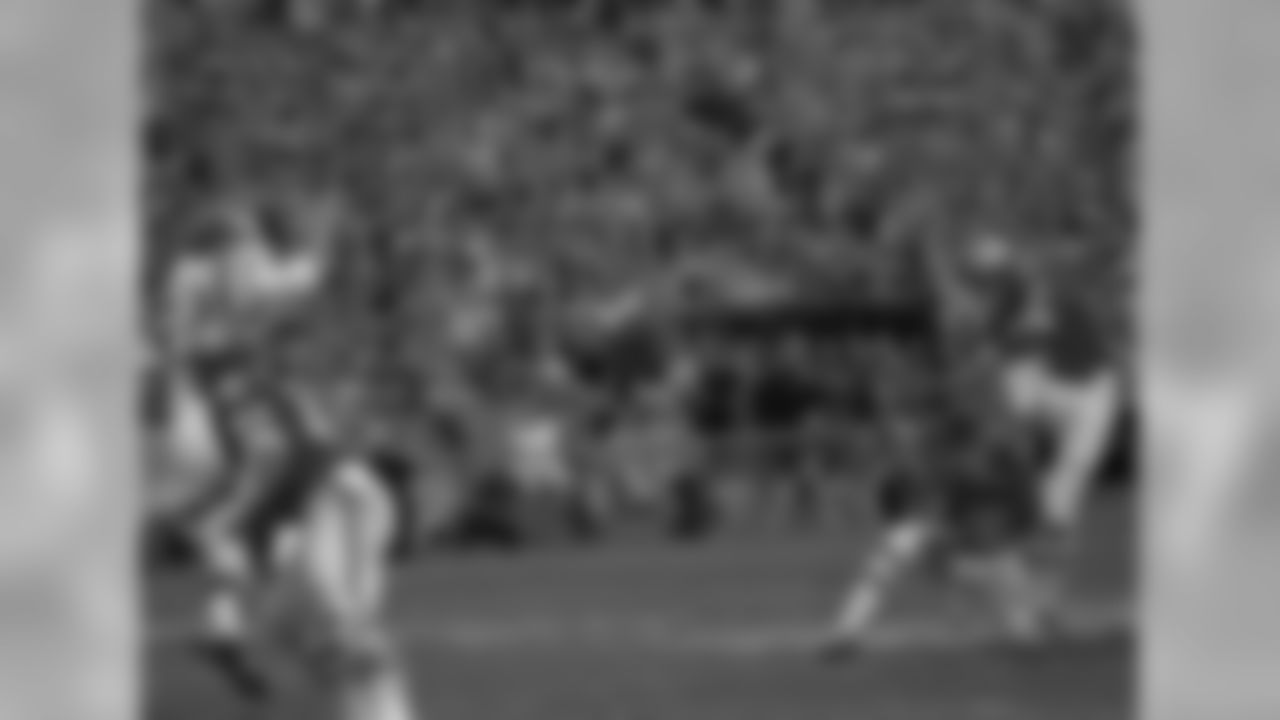
Kansas City Chiefs place kicker Jan Stenerud kicks a field goal against the Minnesota Vikings in Super Bowl IV in Louisiana, Jan. 11, 1970.
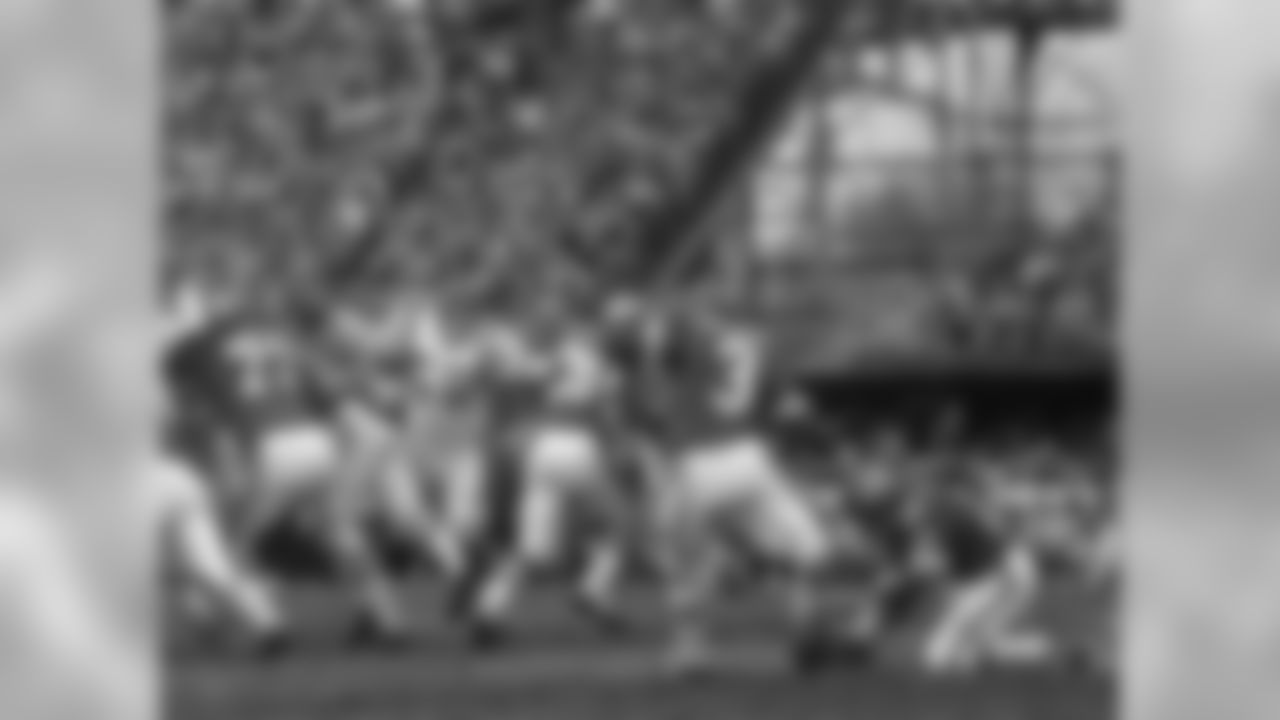
Kansas City place kicker Jan Stenerud kicks a 48-yard field goal in the first quarter of Super Bowl action against the Minnesota Vikings, Jan. 11, 1970,
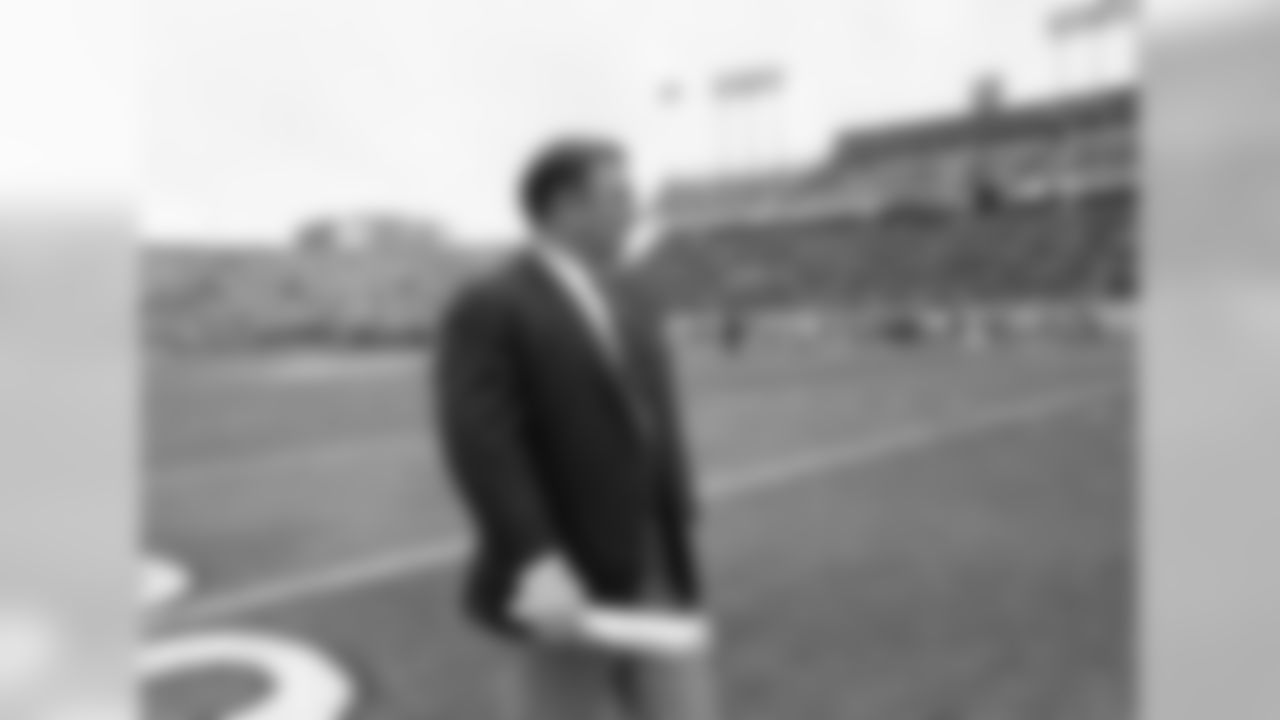
Kansas City Chiefs' coach Hank Stram walks on the field prior to the Super Bowl game with the Minnesota Vikings in New Orleans, Jan. 11, 1970. The stands in the background are starting to fill up as game time nears.
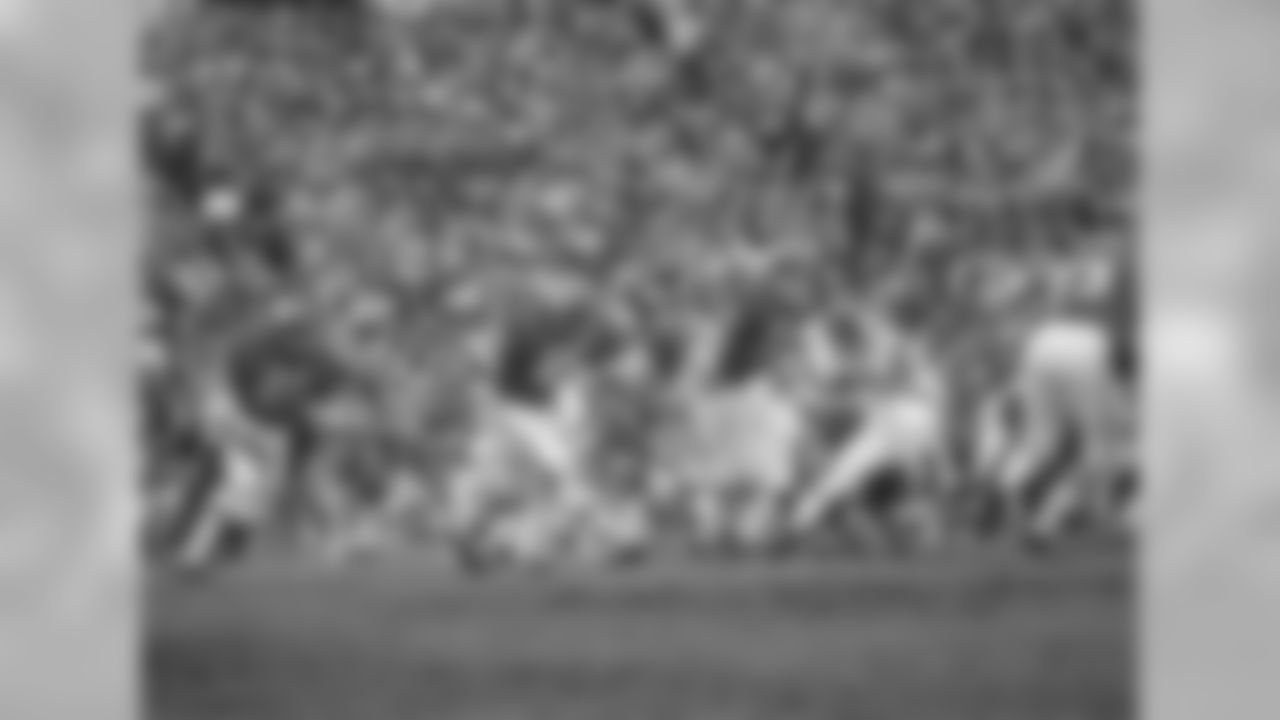
Kansas City Chiefs quarterback Len Dawson prepares to handoff to running back Mike Garrett (21) as running back Robert Holmes (45) and guard Ed Budde (71) lead the play during the Super Bowl in New Orleans on Jan. 11, 1970.
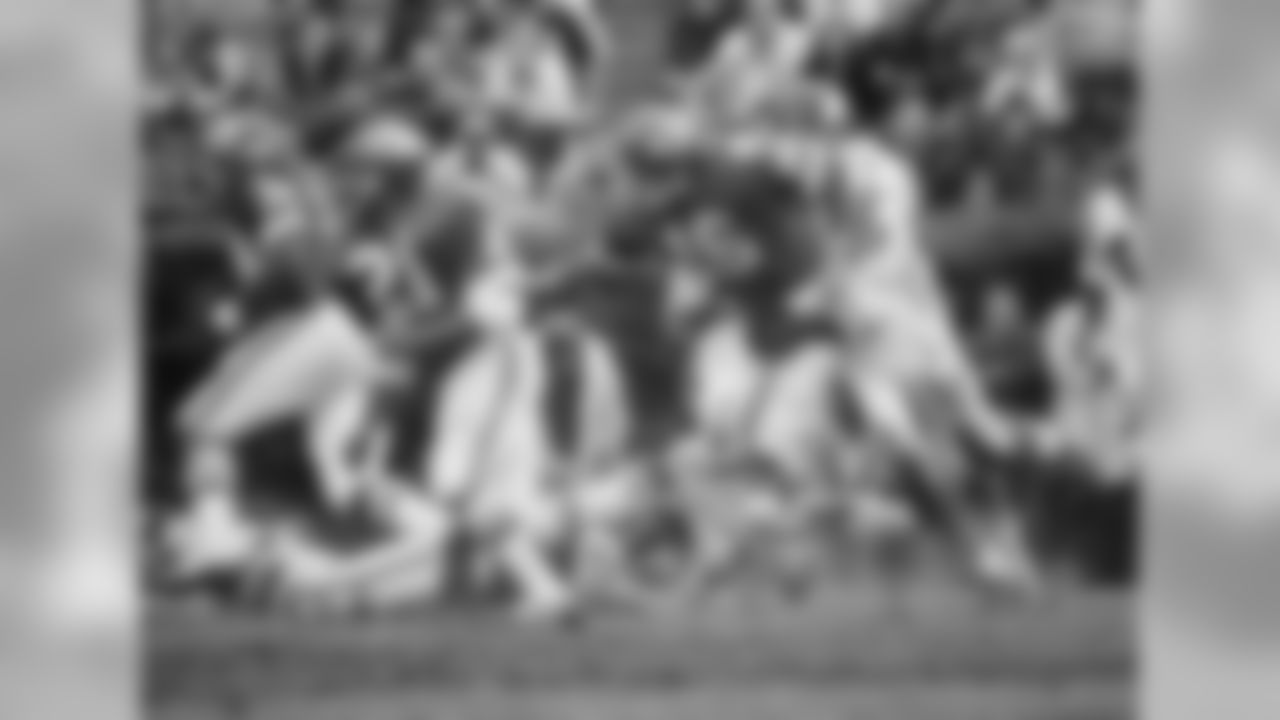
Kansas City quarterback Len Dawson is grabbed by a Minnesota defender after handing off to running back Mike Garett during first half action in the Super Bowl in New Orleans on Jan. 11, 1970. Garrett scored a touchdown on the play.
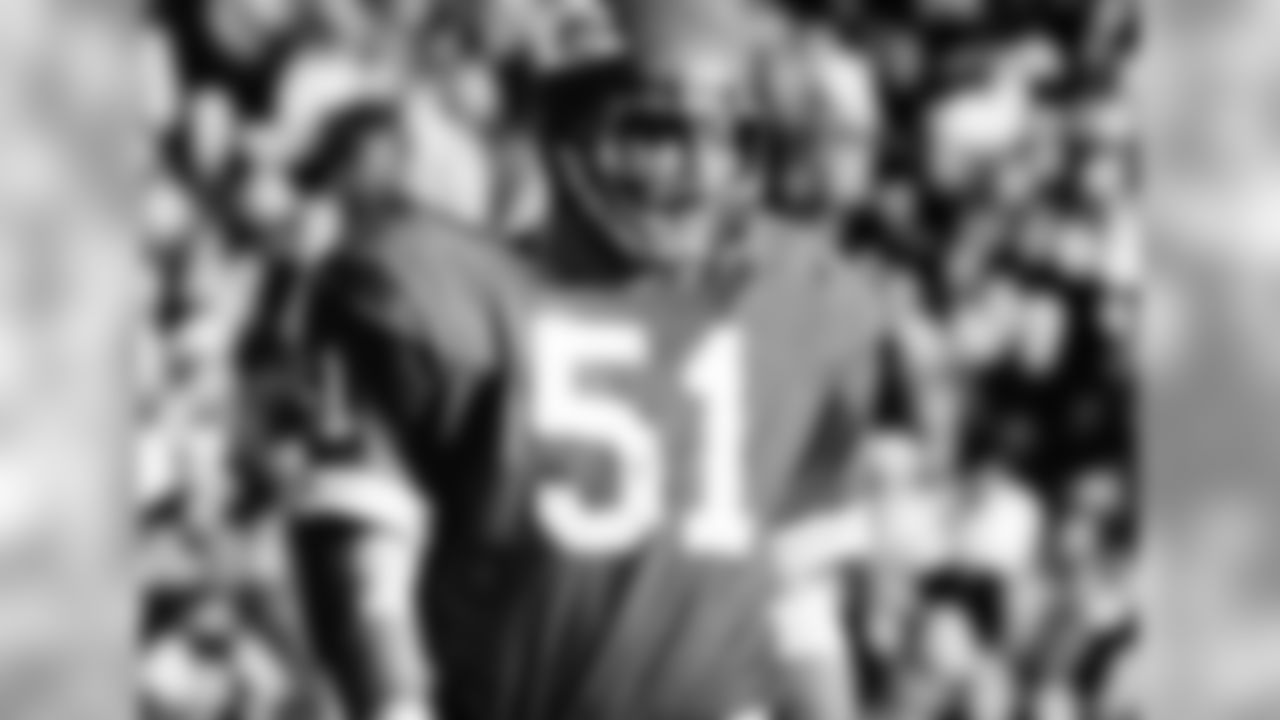
Kansas City Chiefs linebacker Jim Lynch (51) opposing the Minnesota Vikings offense in the Chiefs 23-7 victory over the Vikings in Super Bowl IV on January 11, 1970 at Tulane Stadium in New Orleans, Louisiana. Super Bowl IV - Minnesota Vikings vs Kansas
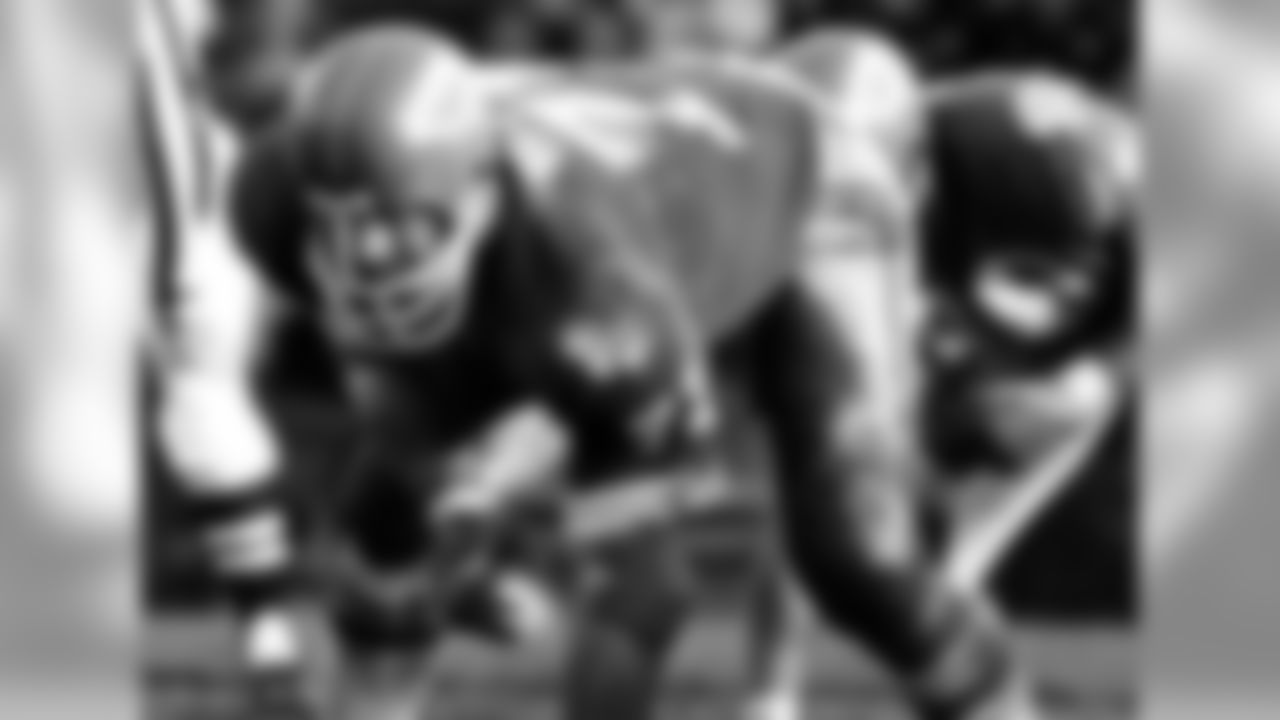
Kansas City Chiefs guard Ed Budde (71) lines up during Super Bowl IV, a 23-7 victory over the Minnesota Vikings on January 11, 1970, at Tulane Stadium in New Orleans, Louisiana. Super Bowl IV
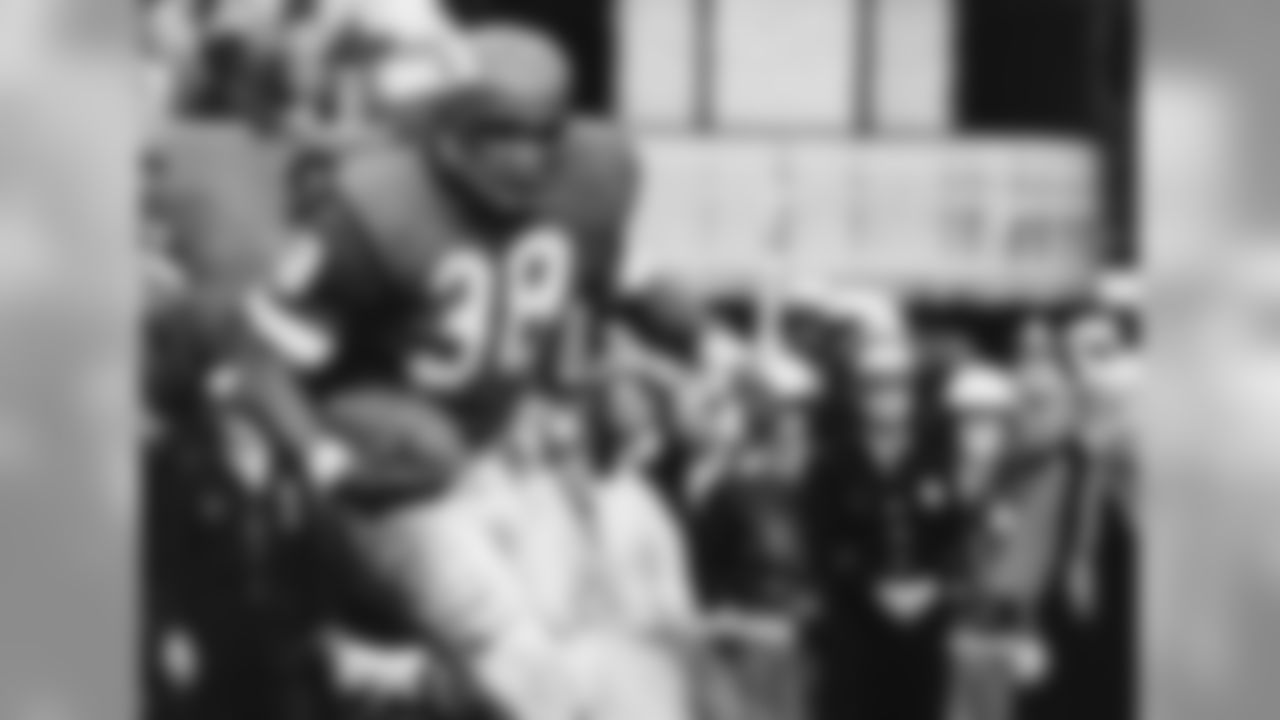
Kansas City Chiefs running back Wendell Hayes (38) runs in the open field during Super Bowl IV, a 23-7 victory over the Minnesota Vikings on January 11, 1970, at Tulane Stadium in New Orleans, Louisiana. Super Bowl IV
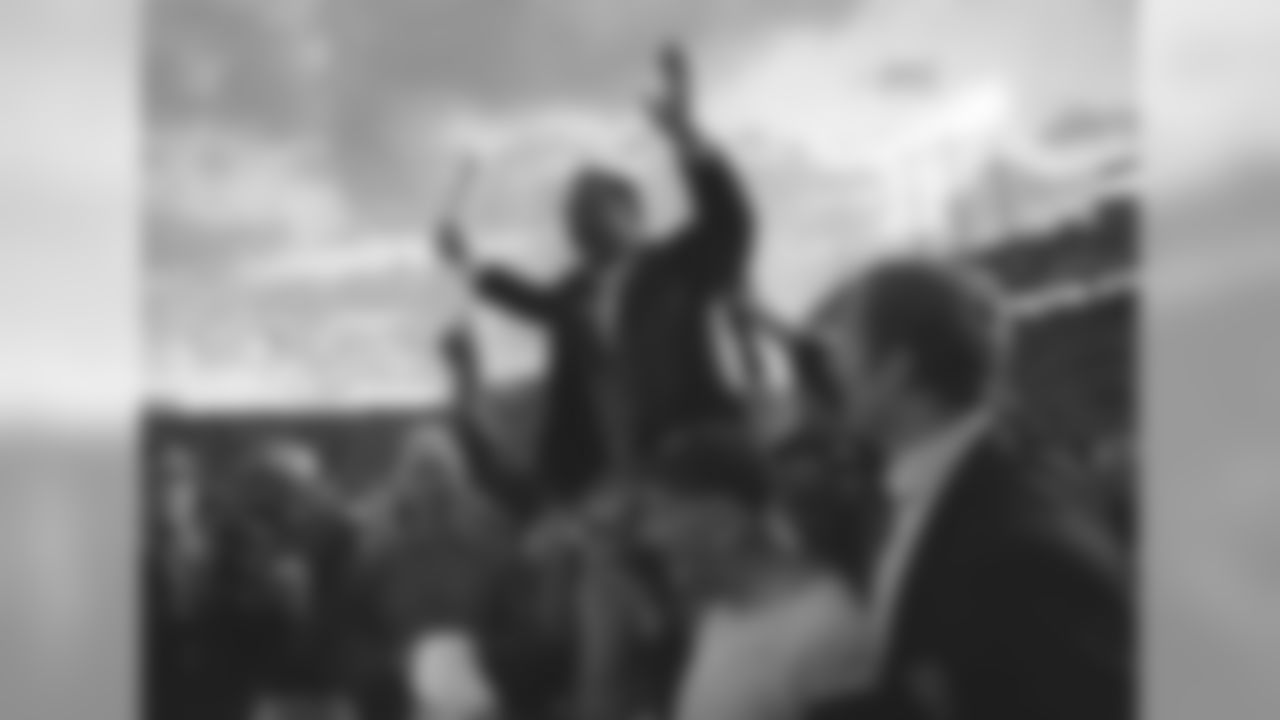
Kansas City Chiefs Coach Hank Stram is carried from the field, Jan. 11, 1970, in New Orleans, after his team defeated the Minnesota Vikings in Super Bowl IV. Stram has been with Kansas City since the league started in 1960.
AS IT TURNED OUT
It was later revealed that Donald "No Dice" Dawson was, according to the U.S. District Attorney, not even a bookmaker but one who handled the collection of funds from bookmakers and that he knew a number of professional players.
It also turned out that the NFL had known of gambler Dawson and had interviewed him as far back as 1968. Further, the correspondent who had originally broken the story admitted that "those people named are not necessarily involved in the gambling operation, but may be able to confirm some of the information compiled." Finally, there were as many as 150 sports figures who supposedly might be called to testify including some from the colleges.
Dawson was never called to testify and the incident after a couple of days soon passed from memory. Even the mention of it on the broadcast of Super Bowl IV was, by today's standards, little more than a throw-away line. The messengers that transmitted or mediated what is loosely called collective memory at the time largely dismissed the incident.
Next Time: The same story if told today




